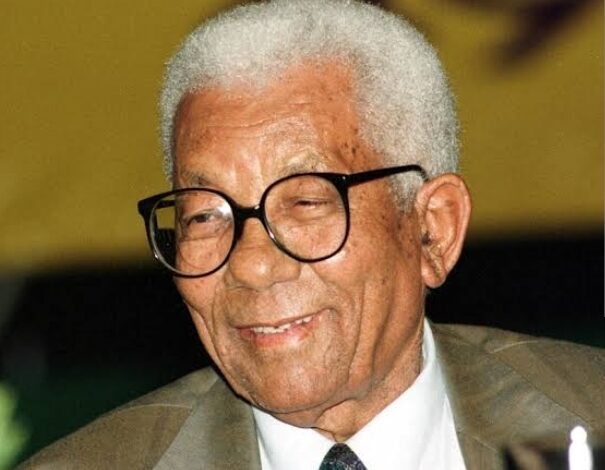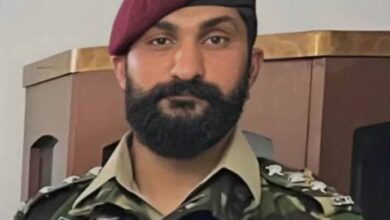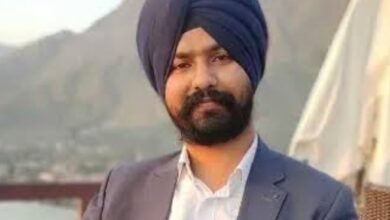Walter Sisulu Biography: Education, Career, Marriage, Achievements, Age 2025

Walter Sisulu: Every great movement in history has its giants. Some stand in the spotlight, giving speeches that echo through time. Others work quietly in the background, shaping events, building unity, and mentoring leaders. Walter Max Ulyate Sisulu belonged to the second group. He was not the most famous face of South Africa’s liberation struggle, but without him, the fight against apartheid would not have been the same.
Walter Sisulu was the man who helped transform the African National Congress (ANC) from a slow-moving organization into a strong, militant movement. He was the man who discovered and mentored Nelson Mandela, standing by his side from the earliest days of resistance to the final victory of democracy. He spent 26 years in prison, yet he never gave up on the dream of a free South Africa.
His life was about sacrifice, loyalty, and service. He loved his country, his people, and his family deeply. While he lived a simple life, he left behind a wealth of wisdom, courage, and legacy that is richer than money could ever measure.
Walter Sisulu Early Life and Family Background
Walter Max Ulyate Sisulu was born on 18 May 1912 in Qutubeni, a small village near Engcobo in the Eastern Cape of South Africa. His birth reflected the deep racial divisions of the country. His father was a white man, Albert Victor Dickinson, who worked as a civil servant. His mother was Alice Mase Sisulu, a black woman from the Xhosa ethnic group who worked as a domestic servant.
Albert Victor Dickinson did not play a role in Walter’s life. He did not raise him, support him, or guide him. This meant Walter grew up without a father figure and was raised almost entirely by his mother and relatives. His mother, Alice, was his source of strength and inspiration. She was hardworking, compassionate, and determined, and she passed these values on to her son.
Walter also had siblings on his mother’s side. Though records of all their names are not widely published, he grew up in a closely connected family environment where children learned to share responsibilities early. Life in Qutubeni was tough, but it was filled with the values of family and community that would shape Walter’s character for the rest of his life.
Read Also: Adaora Umeoji Biography: Education, Career, Achievements, Age 2025
Education
Walter started school at a local mission school. He enjoyed learning, but his education was disrupted by poverty. His family could not afford to keep him in school, and so he had to leave early. Like many black children of his time, he was denied the opportunity of a full education, not only because of money but also because of the oppressive system that limited the opportunities of black South Africans.
Despite this setback, Walter did not allow his lack of formal education to define him. He continued learning informally by reading, listening to others, and involving himself in discussions. His intelligence and curiosity made him a natural leader even without advanced schooling. Later in life, many would be surprised to learn that this man, who mentored some of South Africa’s greatest leaders, never had the chance to complete his own education.
Career
To survive, Walter took on different jobs. He worked as a farm laborer, a mineworker, and a domestic servant. These jobs were difficult and poorly paid, but they gave him a close understanding of the struggles of ordinary black South Africans. Working in the gold mines especially opened his eyes to the harsh exploitation of black laborers by the white-dominated system. This experience deepened his anger against injustice and fueled his desire for change.
In the late 1930s, Walter moved to Johannesburg, the bustling city that was becoming the center of political and economic life in South Africa. In Johannesburg, he tried his hand at various trades. He even trained as a mine surveyor for a while but was unable to qualify because of the restrictions placed on black workers. Eventually, he worked as an estate agent and became known as one of the few black men at the time who could help black families buy homes in a society that tried to deny them land ownership.
It was in Johannesburg that Walter became more involved in politics. He met other young black South Africans who were determined to resist the injustices of apartheid and racial segregation. Slowly, he found his purpose in life.
Marriage and Family Life
In 1944, Walter married Albertina Thethiwe, who was then a young nurse. Albertina later became one of the strongest women in South Africa’s liberation struggle. Their marriage was more than a union of two people. It was a partnership built on shared values of service, sacrifice, and justice.
Together, they raised five children: Max, Lindiwe, Zwelakhe, Mlungisi, and Nonkululeko. Despite the long periods Walter spent in prison, the Sisulu family remained strong. Albertina became both mother and father during those years, raising their children and continuing the fight for freedom outside prison walls. Their home became a place of political activity, love, and resilience.
Political Involvement and Leadership
Walter joined the African National Congress (ANC) in the early 1940s. At that time, the ANC was not very active. It relied mostly on petitions and polite negotiations with the government, which brought little change. Walter believed that the organization needed to become stronger and more active.
In 1944, Walter, along with Nelson Mandela, Oliver Tambo, and Anton Lembede, founded the ANC Youth League. The Youth League called for a new kind of leadership, one that was bold, militant, and willing to use mass action to fight apartheid. This marked the beginning of a new era in the struggle.
Walter played a key role in convincing Nelson Mandela to join the ANC. Mandela himself later said that it was Walter who introduced him to politics and guided him like a father figure. Without Walter Sisulu, Nelson Mandela might never have become the leader we know today.
Walter quickly became a central figure in the ANC. He was not always the one giving speeches, but he was the one planning, organizing, and bringing people together. He was a master strategist who believed that unity was the most powerful weapon against apartheid.
In 1952 he helped organize this mass protest where thousands of South Africans deliberately broke apartheid laws by entering “whites-only” areas. It was the first large-scale, coordinated act of defiance.
In 1955 he helped bring together different racial groups and political organizations to adopt the Freedom Charter, a historic document that called for equality, democracy, and justice for all.
He also mentored many young leaders, including Mandela and Tambo, shaping them into icons of the struggle.
He believed in collective leadership. For Walter, the struggle was never about one man’s glory. It was about the people.
Imprisonment and Resilience
Walter’s role in the struggle made him a target for the apartheid government.
In 1956, he was arrested with 155 others and charged with treason in what became known as the Treason Trial. The trial dragged on for years, but eventually all were acquitted.
In the early 1960s, after the Sharpeville Massacre, the ANC was banned. Walter went underground, helping to organize Umkhonto we Sizwe, the armed wing of the ANC.
In 1963, Walter was arrested at a farm in Rivonia. This led to the famous Rivonia Trial, where he, Mandela, and other leaders were charged with sabotage.
In 1964, Walter Sisulu was sentenced to life imprisonment. He was sent to Robben Island, where he would spend the next 26 years.
But prison did not break Walter. Instead, it revealed his inner strength.
On Robben Island, he became a mentor and teacher to many younger prisoners. He used the time to educate, to build morale, and to remind others that freedom was worth the sacrifice. His calmness, wisdom, and humility made him a father figure inside the prison, just as he had been outside.
Even the prison wardens came to respect him. They saw in him a man of dignity and intelligence who never lost his humanity despite the cruelty of his conditions.
Release and Continued Leadership
Walter was released in October 1989, just months before Nelson Mandela walked free in February 1990. His release came at a time when apartheid was beginning to collapse and negotiations for a democratic South Africa were starting.
After his release, Walter returned to political life. He served as Deputy President of the ANC, helping to guide the organization during the delicate negotiations that eventually led to the 1994 democratic elections. Unlike some others, he did not seek personal power. Instead, he remained the same humble, quiet leader who believed in service above self.
Achievements and Legacy
Walter Sisulu’s life was full of achievements, though he never measured his worth in awards or wealth. Some of his greatest achievements include:
Helping to transform the ANC into a powerful liberation movement. Mentoring leaders like Nelson Mandela, who later called him “the greatest leader I have ever known.” Playing a central role in the adoption of the Freedom Charter. Surviving 26 years in prison without losing hope. Serving as Deputy President of the ANC after his release. Being honored by South Africa after democracy with state recognition and respect worldwide.
He received several awards, including the Isithwalandwe Medal, the highest honor of the ANC. Schools, hospitals, and streets across South Africa are named after him.
Net Worth
Walter Sisulu was not a man who chased wealth. He lived a modest life, dedicated to the struggle. By the time of his death in 2003, his financial worth was not measured in money but in legacy. However, historians estimate that if his life’s work, public service recognition, and later positions are considered, his net worth could be valued at around 1 to 5 million US dollars. But more importantly, he left behind something no money could buy: a free and democratic South Africa.
Death and Remembrance
Walter Sisulu died peacefully at his home in Johannesburg on 5 May 2003, just a few days before his 91st birthday. His funeral was attended by leaders from around the world. Nelson Mandela wept openly at his passing and described him as a man of unmatched integrity and wisdom.
Today, Walter Sisulu is remembered as the quiet architect of South Africa’s freedom. His story reminds us that leadership is not always about fame. Sometimes it is about working in the background, building others, and staying true to your values.
Conclusion
Walter Sisulu’s life was a gift to South Africa. He was a son raised in poverty who became a father of a nation. He had no wealth or privilege, yet he shaped history. He believed in freedom, equality, and justice, and he gave his life to make them real.
When we remember Nelson Mandela, Oliver Tambo, and the other heroes of the struggle, we must also remember Walter Sisulu, the man who stood beside them, guided them, and held the movement together. His legacy lives on in the free South Africa that millions now enjoy.



